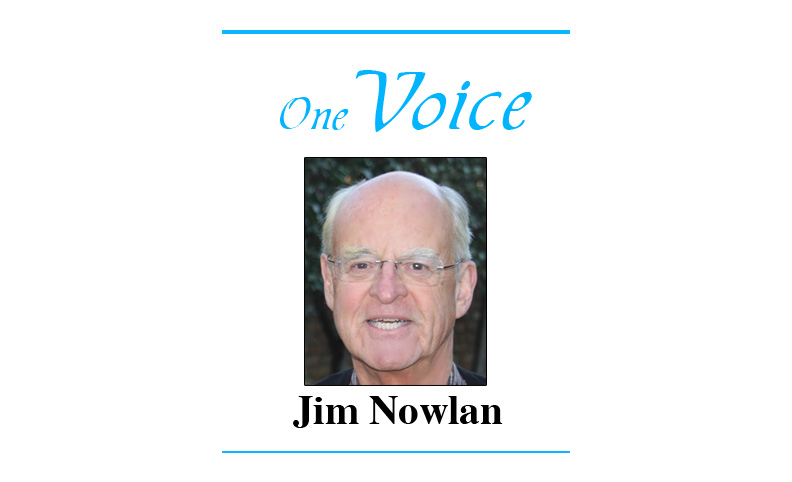
The recent passing of Illinois Republican governor Jim Thompson (1977-1990) begs the question: Can the Illinois Republican Party ever again capture the governor’s office?
The only answer I can come up with is, unfortunately: Not likely, but not impossible. Here’s why.
Jim Thompson served four terms, twice as many as any governor in Illinois history. He probably could have been elected to a fifth, though he was running out of money to do things for people. I was in and out of his administrations, from volunteer policy research in his first campaign, to several trouble-shooting agency directorships (never fixed a one of them), to drafting his fourth inaugural address.
Jim liked people, all people, from the little guy to the big shots, from country folk to urban minorities. As with many politicians, he wanted to be liked, and he was. He was smart, enjoyed negotiating, coming to a deal. His style was collaborative rather than combative. Jim attracted good people to run his agencies, and he let them do the managing.
Jim believed in his Illinois. He wanted to build out our state, from Chicago skyscrapers and sports stadiums to downstate highways. Jim loved selling Illinois. He set up state marketing offices in big cities all over the world, and enjoyed immensely taking delegations across the ponds to try to bring business back to Illinois. And he was successful, as with bringing Mitsubishi Motors to Normal (now Rivian Motors).
Jim was moderate, even liberal. He was pro-choice, pro-union, pro-spending; he added lots of pension benefits for public employees (including doubling his own), yet put off paying for them.
Conservative Republicans grumbled under their breath about Big Jim, but he was tough on crime with his determinate, Class X long sentences, which they applauded.
The Illinois GOP of 2020 would not be comfortable with Big Jim. The Party is opposed to lots of things Jim was for, women’s choice, unions, welfare, Chicago, spending, and taxes.
The Illinois GOP of the present seems to me most comfortable exhorting voters to return to traditional small-town, conservative values. And that is the problem for Republicans.
The largely small-town downstate that lies outside metro-Chicago has but one-third of the State’s votes and only leans Republican. Thus, the GOP cannot win statewide without strong support in the suburbs, and by making at least some inroads into heavily Democratic Cook County and its Chicago.
Cook County accounts for almost two-fifths of the statewide vote, and in 2018 gave Democratic statewide candidates almost three-to-one majorities! Even more startling for old-time political observers, the Democratic candidates actually carried the once rock-ribbed GOP suburban “collar counties.”
So, it looks bleak for statewide wins for the Illinois GOP, though not impossible. After all, starting with Jim Thompson in 1977, Republicans held the governor’s office for 26 straight years.
To win, I think the following must be understood:
Most political party organizations, including that of the Illinois GOP, have atrophied to near helplessness. Candidates must build their own volunteer organizations, and they must also find ways to reach the voters. In statewide races across a state 400 miles deep and with almost 13 Million people, that requires big money, the commodity that has replaced parties.
Second, a successful statewide Republican candidate will have to be either moderate on social issues like abortion and guns, or at least come across as a conservative whom voters can relate to, feel comfortable with, such as Ronald Reagan.
In my central Illinois, I identify three GOP comers who might just put together what is needed for statewide success: State senator Jason Barickman of Bloomington; U.S. representative Adam Kinzinger of Manteno and State senator Sue Rezin of Morris, the latter two on the edge of the suburbs. All are smart, reasonable politicians who know how to work across the partisan aisle. True conservatives might want to get behind attractive U.S. representative Darin LaHood of Peoria. There are, I’m sure, other “comers” elsewhere in the State.
Downstate candidates have added challenges. First, they are outside the critical Chicago media lens. For example, Jim Thompson became almost a household word throughout the metro-Chicago area via the nightly news, as a crusading, corruption-busting U.S. attorney.
Second, downstaters are generally not privy to the company of the Chicago-area Daddy Warbucks donors, that is, the tight-knit, near-billionaire community who have become the primary funders of big political campaigns.
The overwhelming Democratic dominance of Illinois that has developed since 2000 is not healthy. A Jim Thompson-type of Republican might have a chance statewide. Other than that, it’s going to be real tough.
Jim Nowlan is the lead co-author, with J. Thomas Johnson, of “Fixing Illinois: Politics and Policy in the Prairie State” (University of Illinois Press, 2014).

